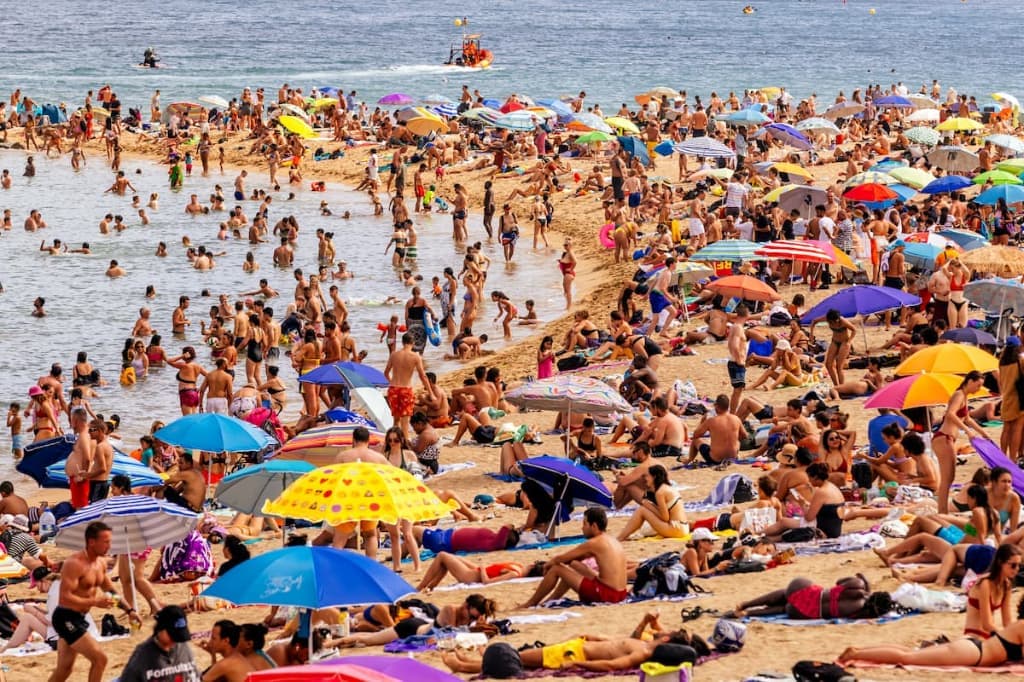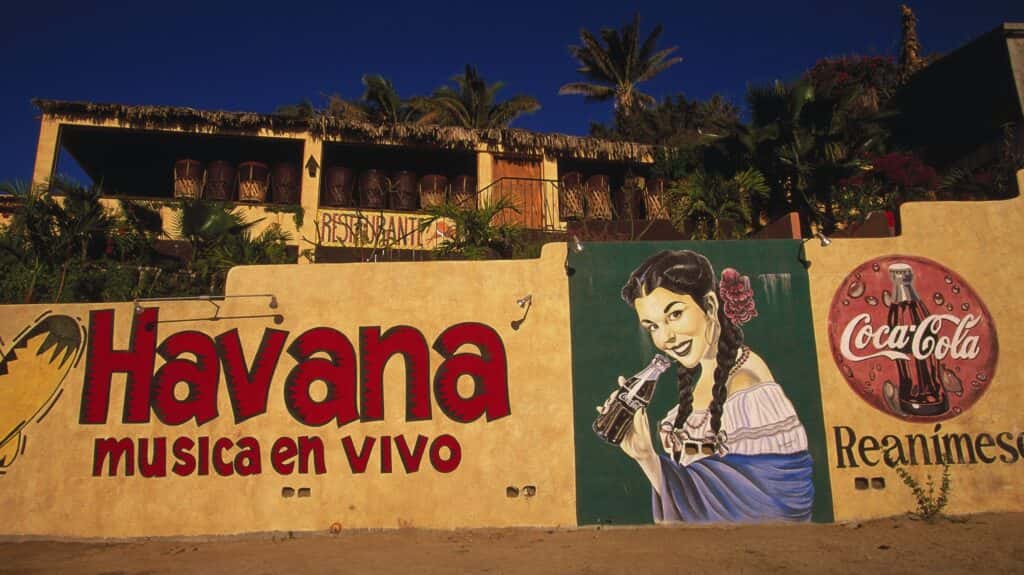Going beyond advertising destinations, travel promotion is about mesmerizing imaginations, evoking emotions and enticing potential customers to set out on unforgettable journeys.
In an increasingly competitive global market worth more than $7.7 trillion USD, mastering the discipline of advertising requires a blend of creativity, market insights and effective storytelling. It is key to standing out in the crowded tourism industry, whether you’re promoting a bustling city, serene resort or cultural treasures.
This article looks into essential strategies and best practices to help tourism professionals and marketers create compelling campaigns that resonate with audiences, drive engagement and inspire travelers to choose a destination.
What is tourism advertising?
This discipline involves carefully promoting destinations, attractions, accommodation and experiences to potential travelers. It is a powerful tool for destinations to showcase their unique offerings and effectively appeal to target audiences. Beyond simply marketing a place, tourism advertising aims to inspire wanderlust, create desire and influence travel decisions.
This uses various media channels, from traditional print and television to digital platforms, blogs and social media posts to reach and engage travelers worldwide. The goal is to convey the essence and allure of a destination, highlighting its natural beauty, cultural richness, available recreational activities and hospitality to show the kind of customer experience travelers can expect. Effective tourism advertising also captures imagination, sparking curiosity and compelling customers to explore and experience the destination first hand.
Advertising for travel destinations is vital in shaping perceptions of a location, improving its reputation and driving economic growth through increased visitor spending. It can also contribute to sustainable tourism development and build good partnerships in the travel industry.
The most important aspects of tourism advertising
Travel marketing efforts involve several key components to attract and engage potential travelers. Let’s explore some of the essential elements in creating effective tourism campaigns.
Target audience analysis
Understanding the ideal customer is fundamental to effective tourism advertising. It involves detailed demographic analysis, psychographic profiling and understanding travelers’ motivations, preferences and behaviors. By segmenting the audience and tailoring messages to resonate with their interests and aspirations, marketers can create more personalized and compelling campaigns.
Compelling storytelling
Narratives that evoke emotions, highlight unique experiences and showcase the authenticity of a destination are crucial. Effective storytelling captures the essence of a place, its culture, heritage and lifestyle, inspiring travelers and developing a connection that goes beyond mere promotion.
Visual appeal
This is a powerful tool in tourism advertising. Stunning imagery, mesmerizing videos and immersive virtual tours can transport viewers to the destination, allowing them to visualize themselves experiencing its attractions and activities. High-quality visuals attract attention, improve the perceived value of the destination and stimulate travel aspirations.
Unique selling proposition
Identifying and highlighting a destination’s distinctive features is essential. Whether it’s breathtaking natural landscapes, rich cultural heritage, adventure opportunities, culinary delights or exclusive events, emphasizing what sets the location apart from competitors helps differentiate it and attract travelers seeking distinct experiences.
Integrated marketing channels
Effective tourism promotion employs a blend of strategic approaches to engage target audiences at various stages of their travel planning process. This includes digital platforms (travel websites, social media channels, search engines), traditional media (print, television, radio), influencer partnerships, email marketing and public relations. A cohesive omnichannel approach ensures consistent messaging and maximizes exposure across diverse touchpoints.
Call to action
Whether it’s encouraging potential travelers to book accommodations, explore tour packages, sign up for newsletters or engage with social media content, these prompts guide potential visitors towards taking the next step in their travel planning process. A clear and compelling call to action is crucial in driving conversions in tourism advertising.
Measurement and optimization
Checking the effectiveness of tourism advertising campaigns through analytics and performance metrics is essential for continuous improvement. Analyzing key performance indicators such as website traffic, engagement rates, conversion rates and return on investment helps marketers assess campaign success, identify areas for optimization and allocate resources effectively for future initiatives.

Challenges in tourism advertising and how to overcome them
When you’re making a marketing plan, you will likely face several obstacles to effectively promoting destinations and enticing travelers. Addressing the difficulties outlined below requires strategic planning, creativity and adaptability.
High competition
One of the primary challenges in tourism advertising is the saturation of the market from other businesses and destinations vying for travelers’ attention. To overcome this, destinations must differentiate themselves by identifying and highlighting their unique selling propositions. Emphasizing authentic cultural experiences, niche attractions, sustainability initiatives or special events can help destinations stand out and appeal to specific target audiences seeking distinctive travel experiences.
Seasonal demand fluctuations
Tourism is often subject to seasonality, with peaks and troughs in visitor arrivals influenced by factors such as weather, holidays and events. Managing demand fluctuations requires strategic marketing efforts that promote off-peak travel periods or diversify tourism offerings to attract visitors year round. Implementing targeted marketing campaigns, special promotions and package deals during shoulder seasons can help smooth out demand and maximize occupancy rates.
Changing consumer preferences and trends
Influenced by factors such as socio-cultural shifts, technological advancements and global events, demand is always evolving. Keeping abreast of these changes and adapting marketing strategies accordingly is essential. Destinations should conduct regular market research, monitor travel trends and engage with target audiences through surveys and social listening to anticipate shifts in consumer behavior. By staying adaptable and responsive, destinations can tailor their messaging and offerings to align with current trends and preferences.
Budget constraints
Effective tourism advertising requires substantial financial resources, yet many destinations face funding issues. To optimize marketing spend and demonstrate return on investment, destinations should prioritize data-driven decision making and invest in analytics tools to track campaign performance. Implementing performance metrics such as cost per acquisition, conversion rates and customer lifetime value allows destinations to evaluate the effectiveness of marketing initiatives and allocate resources to strategies that deliver the highest return on investment.
Negative public perception
Bad publicity, political instability, natural disasters or health crises can significantly impact a destination’s reputation. Overcoming these challenges requires proactive crisis management, transparent communication and strategic repositioning of the destination’s image. Engaging with media, influencers and stakeholders to showcase recovery efforts, safety measures and the resilience of the local community can help rebuild trust and mitigate negative perceptions. Using digital platforms to spread accurate information and highlight the destination’s ongoing appeal and readiness to welcome visitors can also reassure prospective travelers.
Technological advancements and digital transformation
The rapid evolution of technology presents opportunities and challenges for tourism advertising. While digital platforms and social media offer unprecedented reach and engagement opportunities, keeping pace with tech advancements requires ongoing investment in digital marketing capabilities. Destinations should embrace innovation and use emerging technologies to create immersive experiences, personalized marketing content and interactive campaigns that resonate with tech-savvy travelers.
How to learn tourism advertising
Whether you’re new to the field or aiming to improve your skills, mastering the intricacies of this area involves a combination of theoretical knowledge, practical experience and staying updated with industry trends. Below, we look at some of the best ways to learn.
Hospitality qualifications and courses
Pursuing a degree or certification in hospitality management and travel gives students a solid foundation in the principles of tourism advertising. Programs often cover marketing strategies, consumer behavior, destination management and sustainable tourism practices. Courses in branding, digital marketing and hospitality operations can also offer valuable insights into promoting destinations effectively.
If you are drawn to a career in travel and tourism, the right hospitality degree will help you build a solid foundation in the industry.
Get ahead in tourism advertising
With world-class tutors and incredible placements, our degrees can give you the edge in tourism marketing

Experience in tourism
Hands-on practice through internships or entry-level positions in tourism boards, travel agencies, hotels or marketing agencies can be invaluable. Internships provide practical exposure to marketing campaigns, market research and social media platforms and involve collaborating with industry professionals. Such real-world challenges and projects will help boost your storytelling and customer relationship management skills and digital marketing techniques.
Travel and immersion
Personal trips can enrich your understanding of destination marketing. Exploring different cultures, attractions and hospitality services first hand provides insights into travelers’ expectations, preferences and motivations. Immersing yourself in diverse destinations encourages empathy, cultural sensitivity and an appreciation of the unique aspects that appeal to travelers.
Continuous learning and industry insights
Stay updated with trends, best practices and emerging technologies in tourism advertising. Attend workshops, webinars and conferences hosted by tourism associations, marketing organizations or educational institutions. Interacting with industry leaders, networking with peers and participating in online forums or LinkedIn groups facilitate knowledge exchange and professional growth.
Mentorship and professional development
Seek advice from experienced professionals in tourism marketing or related fields. Mentors offer guidance, industry insights and career advice to help you navigate challenges and capitalize on opportunities in tourism advertising. Joining professional associations provides access to mentorship programs, resources and development opportunities.
Online resources and case studies
Take advantage of available digital information, industry publications and case studies of successful tourism advertising campaigns. Analyze strategies, creative approaches and outcomes to gain insights into effective marketing techniques and consumer engagement.
Master digital marketing tools and platforms
Familiarize yourself with social media, search engine optimization, email marketing, pay-per-click advertising and analytics. Hands-on experience in managing digital campaigns and interpreting data analytics will increase your effectiveness in reaching and engaging travelers online.
Skills needed for tourism marketing
Effectively promoting destinations and attracting travelers in this competitive industry requires various aptitudes that blend creativity, strategic thinking and technical proficiency. The most essential skills for success in tourism marketing are:
- Creativity and storytelling: the ability to craft compelling narratives and evoke emotions through engaging stories about destinations
- Market research and analysis: proficiency in gathering and interpreting data to understand consumer behavior, identify target audiences and uncover trends
- Digital marketing expertise: knowledge of social media promotion, search engine optimization, content creation, email campaigns and proficiency in digital analytics tools
- Graphic design and visual communication: using graphical devices, photography and videography to create appealing content that showcases destination attractions
- Interpersonal skills: strong verbal and written communication abilities to convey brand messages, build relationships and engage with stakeholders and emotional intelligence to know what customers want
- Cultural sensitivity and global awareness: understanding of societal nuances and diversity to develop campaigns that resonate positively with a wide range of audiences
- Project management: the ability to plan, execute and monitor marketing campaigns within budget and timeline constraints, coordinating cross-functional teams effectively
- Adaptability and innovation: the capacity to react to changing market conditions, embrace technological advancements and come up with new marketing approaches
Conclusion
Mastering tourism advertising requires creativity, strategic thinking and a deep understanding of market dynamics and consumer behavior. By developing storytelling, digital marketing, visual communication and cultural sensitivity skills, marketers can create compelling campaigns that resonate with travelers and inspire them to explore new destinations.
Continuous learning, adaptation to industry trends and embracing innovation are key to staying competitive in the tourism industry. Ultimately, by using these skills and approaches, tourism marketers can attract visitors and contribute to the sustainable growth and positive reputation of destinations worldwide.
If you want to become an expert in tourism advertising, see how a degree from a respected school such as Glion can help.
Photo Credits:
Main Image: Getty shomos uddin









